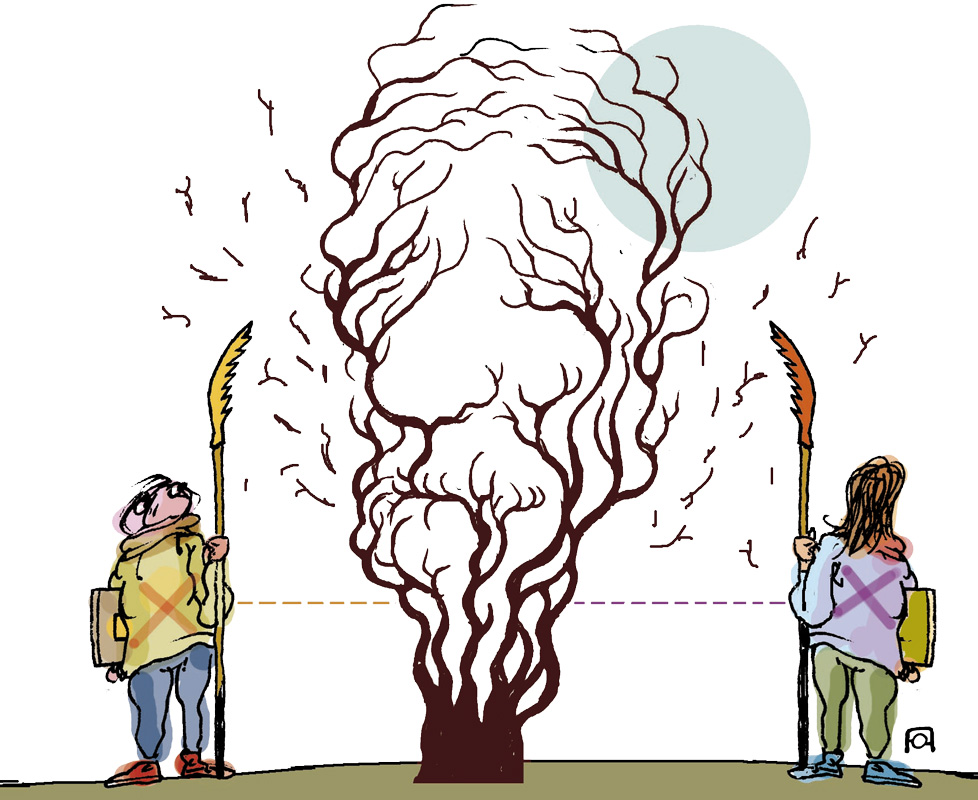

I have just read an interview with the members of the Basque retirement platforms. The journalist has been told that few students and workers have participated in the demonstrations, as they see the issue of pensions very far away and are therefore not sufficiently identified. I read this and remembered Nicaragua.
The political conflict emerged in April 2018 in the protests against a reform of Social Security, but to understand it one has to go back, as one of the biggest impulses is the #Occupationinss movement developed in 2013. In June of the same year, 15,000 elderly persons called by the Association of Older Persons camped in front of the buildings of the National Institute of Social Security (INSS) to demand compliance with the law that guaranteed a reduced pension to those who had not paid enough. The student movement joined and publicized the retirement struggle through the hashtag #Occupationinss, inspired by the #TrailersWallStreet that was held in New York in 2011. For one week, young people facilitated access to water, food and medicines for retirees. When police repression began, students recorded abuses and broadcast them live on the Twitter social network. This alliance achieved a political victory: in July a presidential decree ordered a reduced pension.
At that time I lived between Bilbao and Managua and followed with great interest the #OccuINSS movement. I found the solidarity between the two generations inspiring: the subjects of the struggle were the elderly, but the support and communication of the young were fundamental and faced together with repression. The #OccuINSS movement denounced on the night of 22 June the aggression of 50 young and 35 old people with the complicity of the National Police by 300 hooded Sandinista Youth, as well as the illegal detention of sixteen young people, six of whom were tortured and intimidated.
In February 2018, the International Monetary Fund (IMF) pressured Daniel Ortega to raise the retirement age. In April of this year, the Government announced a rise in the number of workers and employers and in the tax on retirees. The student movement revived the hashtag #Occupationinss and went out into the street in fourteen cities in Nicaragua. It was not an isolated cry, but a new reason to oppose Ortega’s neoliberal and authoritarian policies. We know what happened next: hundreds of deaths, hundreds of political prisoners, thousands of wounded, ten thousand exiles.
A sector on the left of Euskal Herria prefers to talk about the geopolitics and soft blows of the Empire before recognizing this model of intergenerational resistance, long articulated against the demands of the IMF. We can learn a lot from their political culture, as we learned from the Sandinista Revolution.
I have asked a friend from Nicaragua why he believes that student support for retirees has not passed among us. He told me that the elderly do not live in homes or alone, but with children and grandchildren, and that this closeness is the key to solidarity. He added that there is a sense of disrespect for the elderly in our society. Do you know what is the only job option for most Nicaraguan immigrant women? Take care of our grandmothers and aitites.
* Note: As I was writing this article, I was glad to know that this year’s feminist strike is going to be focused on the conflict of care, which is going to denounce the exploitation of domestic and care workers and which is going to unite pensioners.